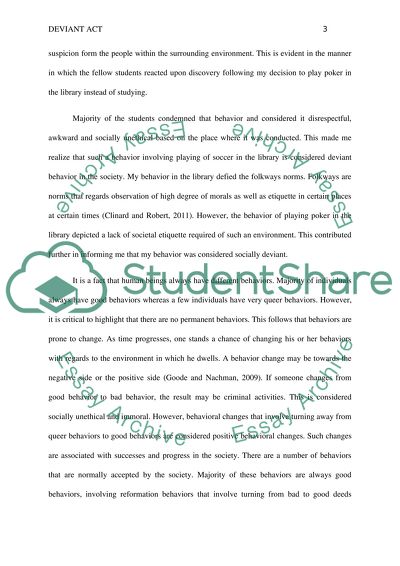Cite this document
(“Deviant Act Essay Example | Topics and Well Written Essays - 2750 words”, n.d.)
Deviant Act Essay Example | Topics and Well Written Essays - 2750 words. Retrieved from https://studentshare.org/sociology/1640996-deviant-act
Deviant Act Essay Example | Topics and Well Written Essays - 2750 words. Retrieved from https://studentshare.org/sociology/1640996-deviant-act
(Deviant Act Essay Example | Topics and Well Written Essays - 2750 Words)
Deviant Act Essay Example | Topics and Well Written Essays - 2750 Words. https://studentshare.org/sociology/1640996-deviant-act.
Deviant Act Essay Example | Topics and Well Written Essays - 2750 Words. https://studentshare.org/sociology/1640996-deviant-act.
“Deviant Act Essay Example | Topics and Well Written Essays - 2750 Words”, n.d. https://studentshare.org/sociology/1640996-deviant-act.


